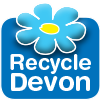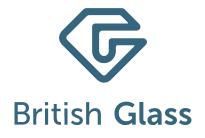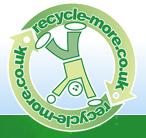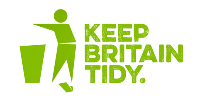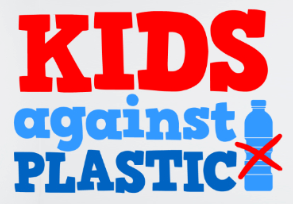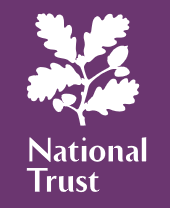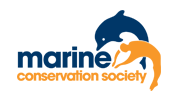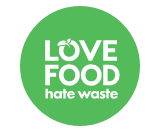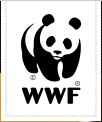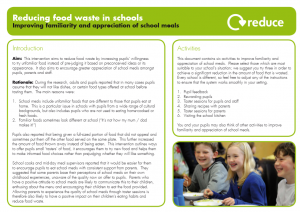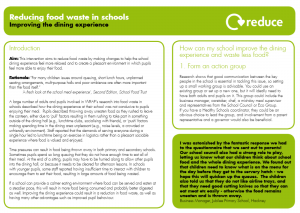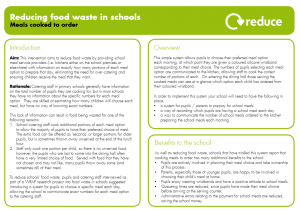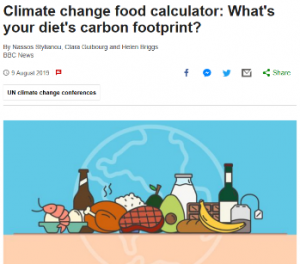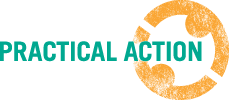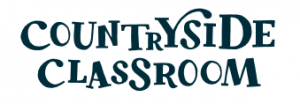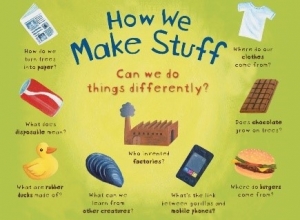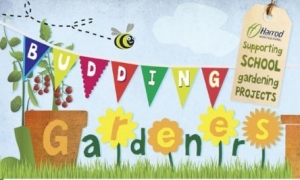 Metal Packaging Manufacturers Association (MPMA) – lesson plans and teaching resources about steel and aluminium recycling. The resources have been written by educational and industry experts and each unit indicates the target age group and curriculum links and includes lessons, teacher information and worksheets where applicable. All pages can be easily downloaded or printed.
Metal Packaging Manufacturers Association (MPMA) – lesson plans and teaching resources about steel and aluminium recycling. The resources have been written by educational and industry experts and each unit indicates the target age group and curriculum links and includes lessons, teacher information and worksheets where applicable. All pages can be easily downloaded or printed.
Recycle More – this area has been designed for teachers and pupils to use, to be carried out at school or at home. A variety of “rubbish” science experiments, resources for using in English or Maths classes and activities to get children thinking. Activities are aged appropriately and by school age; primary and secondary.
 How to run a whole school litter campaign guide – an external site with an 89-page pack that has been designed for use by both teachers and pupils in primary schools, and contains a variety of useful information, resources, lesson ideas, curriculum links and practical suggestions about how you can raise awareness and tackle the issue of litter in your school and local area.
How to run a whole school litter campaign guide – an external site with an 89-page pack that has been designed for use by both teachers and pupils in primary schools, and contains a variety of useful information, resources, lesson ideas, curriculum links and practical suggestions about how you can raise awareness and tackle the issue of litter in your school and local area.

Plastic Free Schools – this ground-breaking programme equips and empowers young activists with the tools to create positive, lasting environmental change. Created to hit key curriculum targets from KS1 – KS3, the packs guide students through the plastic free school’s process in an easy to understand, purposeful and fun way!
 Throughout the whole of 2017 artist Daniel Webb kept all his plastic. He recorded each item on an external website called Everyday Plastic and then turned it into a piece of art which made the news worldwide. His website reports on the most recent survey: Lockdown Edition. This provides a fascinating insight into modern life through our plastic waste.
Throughout the whole of 2017 artist Daniel Webb kept all his plastic. He recorded each item on an external website called Everyday Plastic and then turned it into a piece of art which made the news worldwide. His website reports on the most recent survey: Lockdown Edition. This provides a fascinating insight into modern life through our plastic waste.
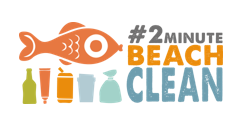 #2MinuteBeachClean – Martin Dorey, the Founder, is available for talks and lectures, beach cleans and school visits. He is a TEDx speaker and has spoken at lots of conferences and events. He has also spoken at primary and secondary schools around the West Country and led and inspired beach clean projects, including our first record–breaking mass #2minutebeachclean with 290 students from Bideford College.
#2MinuteBeachClean – Martin Dorey, the Founder, is available for talks and lectures, beach cleans and school visits. He is a TEDx speaker and has spoken at lots of conferences and events. He has also spoken at primary and secondary schools around the West Country and led and inspired beach clean projects, including our first record–breaking mass #2minutebeachclean with 290 students from Bideford College.
Blue Peter Beach Clean – great video introducing the issue of marine litter, Blue Peter (CBBC) conducts a beach clean with local children.
10 stories about food waste: (KS3/4) 25 minute documentary about all aspects of food waste.
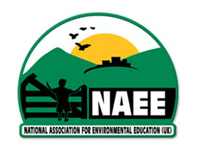 National Association for Environmental Education (NAEE) – NAEE has been promoting environmental education for nearly 60 years. It supports all those involved in delivery of environmental education around the UK, so that together we can understand and act on the need to live more sustainably in order to protect the future of our planet.
National Association for Environmental Education (NAEE) – NAEE has been promoting environmental education for nearly 60 years. It supports all those involved in delivery of environmental education around the UK, so that together we can understand and act on the need to live more sustainably in order to protect the future of our planet.
Global Dimension is an external website that brings together resources, case studies and background information to help teachers bring a perspective from across the globe into their teaching. Resources include finding out about the sustainable growth of the coffee industry to how to make African art from recycled objects. It’s super easy to find something relevant to what you want to be teaching!
 Top Tips for Sustainability in Schools – an external website that provides tips for schools to be more sustainable. To paraphrase their website: ‘We offer suggested actions paired with quality-assured resources. You can filter these so you only see suggestions that are relevant to your setting – based on your teaching age, priorities, how far you’ve progressed already, estate, and more.’
Top Tips for Sustainability in Schools – an external website that provides tips for schools to be more sustainable. To paraphrase their website: ‘We offer suggested actions paired with quality-assured resources. You can filter these so you only see suggestions that are relevant to your setting – based on your teaching age, priorities, how far you’ve progressed already, estate, and more.’
 The Ellen Macarthur Foundation – the Ellen MacArthur Foundation was launched in 2010 to accelerate the transition to a circular economy. Since its creation the charity has emerged as a global thought leader, establishing the circular economy on the agenda of decision makers across business, government, and academia. Resources on this website are tailored to school and college education lesson plans.
The Ellen Macarthur Foundation – the Ellen MacArthur Foundation was launched in 2010 to accelerate the transition to a circular economy. Since its creation the charity has emerged as a global thought leader, establishing the circular economy on the agenda of decision makers across business, government, and academia. Resources on this website are tailored to school and college education lesson plans.
The Ellen Macarthur Foundation: circular economy explanation – great 3-minute short video clearly explaining the concept of the circular economy.
Did you know…
- On average, just one person in the UK will produce 70 kg of textile waste per year.
- Every year UK households emit around 1.5 tonnes of CO2 from their new and existing clothing – a carbon footprint that is equal to 6,000 miles travelled in an average modern car.
- The average life of a garment in the UK is 2.2 years.
Use these resources to change your attitude towards fast fashion at school or home to ensure the way you buy, use and discard clothes is as sustainable as possible.
![]() TRAID has launched Behind the Seams – a new free external resource to support educators to promote education for sustainability. The toolkit uses participatory teaching methods to explore the socio-environmental impacts of how we produce, consume and waste clothes to equip young people with the knowledge and actions needed to shape a more sustainable society. The toolkit is aimed at KS3 and KS4 but has been designed to be used as widely as possible. It contains six lesson plans across three themes – production, consumption and waste – and includes worksheets, slide show presentations and fact sheets to support educators to deliver lessons.
TRAID has launched Behind the Seams – a new free external resource to support educators to promote education for sustainability. The toolkit uses participatory teaching methods to explore the socio-environmental impacts of how we produce, consume and waste clothes to equip young people with the knowledge and actions needed to shape a more sustainable society. The toolkit is aimed at KS3 and KS4 but has been designed to be used as widely as possible. It contains six lesson plans across three themes – production, consumption and waste – and includes worksheets, slide show presentations and fact sheets to support educators to deliver lessons.

